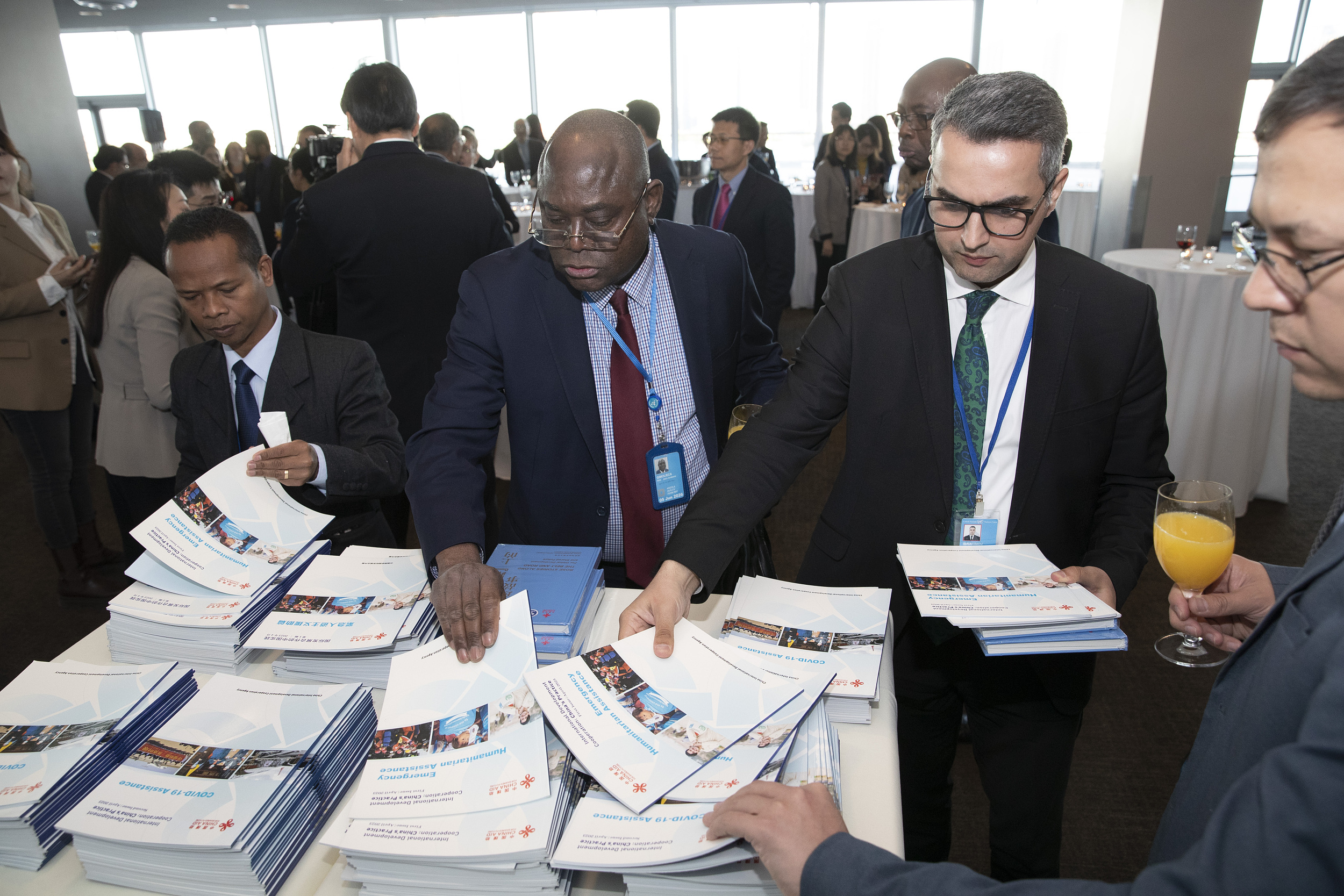
The exhibition themed "New Progress of the Global Development Initiative, New Actions to Implement the 2030 Agenda" was held at the United Nations Headquarters in New York on April 19, 2023. (PHOTO: VCG)
By LIANG Yilian
China's Global Development Initiative (GDI), proposed by President Xi Jinping at the UN General Assembly in September 2021, aims to accelerate the implementation of the UN 2030 Agenda for Sustainable Development, promote stronger, greener and healthier development, and strengthen global cooperation.
"The Global Development Initiative is not a 'solo' of China, but a 'symphony' of all developing countries," said Chinese Vice Foreign Minister Ma Zhaoxu in June while releasing a report on the GDI.
One of the key areas of cooperation proposed by the GDI is poverty alleviation and food security. China has implemented a lots of new projects in collaboration with many countries to boost agricultural productivity since the launch of the GDI. African countries are a prime example. For instance, Chinese agricultural experts have been working closely with farmers and specialists in countries like Nigeria, Tanzania and Rwanda to improve crop yields.
Lina Benabdallah, an assistant professor of politics and international affairs at the Wake Forest University in the U.S., spoke about the significance of such initiatives in an interview with the South China Morning Post, stating "Agriculture holds a huge potential in Africa given the abundance of arable land ... and is also a way to guarantee food security, an area that China has excelled in," she said.
The GDI, endorsed by the UN, offers Africa a golden opportunity to reduce poverty and confront other challenges like the effects of the coronavirus and other health emergencies like Ebola, according to the Independent Online, a South Africa-based news website.
The GDI's contribution to fighting the global pandemic has been noteworthy. China supplied vaccines to over 120 countries and international organizations, making it the second largest donor of COVID-19 vaccines. More than 1,000 medical team members from China have been deployed in 56 countries, providing vital medical services.
Besides, it has been helping out during public health as well as natural disasters. Bassam Ibrahim, Minister of Higher Education and Scientific Research of Syria, acknowledged China's support for tackling with the COVID-19 pandemic and the earthquakes, highlighting the deep historical ties between the two countries, according to the Syrian Arab News Agency.
Under the framework of the GDI, China and Brazil have gone deep into practice. During his state visit to China in April, Brazil's President Luiz Inacio Lula da Silva expressed his country's interest in Chinese communication and semiconductor technology. He also said no one can prohibit from improving its relationship with China, Reuters reported.
The initiative also helps promote trade cooperation between China and Southeast Asian countries. The Philippines and China have witnessed an upswing in cooperation in recent years, with projects serving as a testament to the friendship between the two nations and offering potential "win-win" compromises that could facilitate the resolution of disputes, according to an article in The ASEAN Post written by Anna Rosario Malindog-Uy, vice president of External Affairs at the Asian Century Philippines Strategic Studies Institute.
Laos also supports the GDI and is keen to strengthen economic ties with China. Deputy Prime Minister of Laos Saleumxay Kommasith emphasized the importance of Laos-China cooperation in revitalizing the economy, according to Asian News Network.
Since the launch of GDI in 2021, China has been promoting a series of concrete, measurable and feasible measures and proposals to promote balanced, coordinated and inclusive global growth, according to Dominican economist and author Eduardo Klinger Pevida.
The GDI has made remarkable strides in promoting cooperation on a global scale. From poverty alleviation and ensuring food security to pandemic combat efforts, it has facilitated partnerships, knowledge sharing, and concrete actions. With continued commitment and collaboration, it offers new options for addressing challenges and facilitates a more prosperous and sustainable future for all.
Large language model, "Huashan", specifically applied in the aerospace field for the first time, was launched at the 2024 China Satellite Application Conference.
